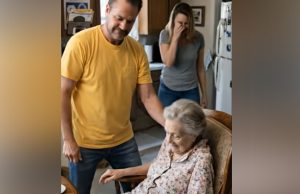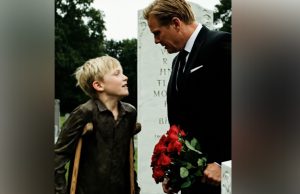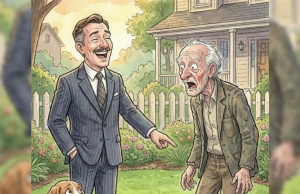
I’m Abigail, 29 years old, and I stood alone at my daughter Emily’s funeral while my parents were at my brother’s pool party.
Emily was only six months old when SIDS took her from us. As I watched her tiny casket being lowered into the ground, my mother’s cruel words echoed in my head: “It’s just a baby. Your brother’s party matters more.” That moment broke something inside me beyond repair.
Throughout my life, I always knew where I stood. My brother Jason, now 32, was the star. From the time he was born, our parents, Margaret and Richard, made it clear he was their pride. His average accomplishments earned celebrations, while my achievements were barely acknowledged. Even when I got straight A’s, all I received were half-hearted congratulations—if that.
By high school, I accepted my place. I poured my energy into school and building friendships with people who genuinely valued me. During my second year of college, I met Michael. His family was warm and attentive—so different from mine that I initially thought it was performative. But over time, I realized their love was simply genuine.
Michael and I got married three years ago, both 27 at the time. When we shared the news of our pregnancy, his parents started planning a baby shower. My parents’ response? “That’s nice. Did Jason tell you he might be promoted?” They came to the shower but spent most of it talking about Jason’s recent vacation.
Emily arrived on a snowy January day. The love I felt holding her was indescribable. Michael’s parents arrived within hours, crying with joy. My parents came the next day, stayed less than an hour, then left because of a hair appointment. Over the following six months, Michael’s parents visited every week. Mine came twice.
Two months before we lost Emily, Jason got engaged. My parents immediately started planning a lavish party—set for the same weekend as Emily’s church dedication. When I reminded them, my mom said, “We’ll have to skip that. Jason’s engagement is a once-in-a-lifetime thing.”
I wanted to say, “So is a baby dedication,” but stayed silent.
Emily caught a mild cold the week before she passed. She seemed better by the weekend. I had no idea those were our final days with her.
On a Tuesday night, we put her to bed like always. The baby monitor was quiet—too quiet. I woke at 6:00 AM with a sense of dread. I found Emily in her crib, still and cold.
“Emily,” I whispered, touching her cheek. She didn’t move.
The next few hours are a blur: screaming, Michael trying CPR, calling 911, paramedics, a kind doctor gently telling us, “I’m so sorry. It looks like Sudden Infant Death Syndrome.”
My hands trembling, I called my mother. “Emily died last night,” I choked out.
“Oh, Abby, that’s awful,” she said flatly. No urgency. No comfort. “We’ll need to schedule a funeral,” I added.
“Yes, let us know when,” was all she said.
Michael’s parents were already on their way.
We set the funeral for Friday at 11 AM. When I told my mom, she said, “Oh dear, that’s the day of Jason’s pool party. We’ve already made plans.”
“Mom, it’s Emily’s funeral,” I said, stunned.
“I know, but Jason’s engagement is important. Emily was just a baby. You can have another.”
I felt like I’d been punched. “I see,” I said and hung up.
The day of the funeral was painfully beautiful. On the way to the cemetery, I checked my phone—no messages from my parents. Just a text from Jason: “Sorry about the baby. Hope the funeral goes okay. Can’t wait for the party later.”
Emily’s casket looked too small for words. Michael’s parents stood beside us, crying. My own parents? Absent. During the service, Jason posted party photos: our parents smiling with champagne flutes while their granddaughter was buried.
A week later, my mother called. “How are you?” she asked casually.
“My daughter died, and you weren’t there,” I said.
“There’s no need for that tone,” she replied. “Come to dinner Sunday—Jason and Stephanie will be there.”
I reluctantly agreed. At dinner, the entire conversation revolved around Jason’s wedding.
“Did Emily’s funeral ruin your party?” I finally asked.
“Let’s not talk about upsetting things,” my mother said nervously.
“You mean my child’s death?” I said.
“What’s done is done,” my father replied.
“That was two weeks ago!” I snapped.
Jason rolled his eyes. “You’re being dramatic, Abby.”
“Dramatic? My daughter died, and you didn’t show up because of a pool party!”
“It was a celebration,” my mother said defensively.
“But missing a funeral? Telling me to just have another baby?”
Michael, quiet until then, spoke up. “Do you even realize what Abby’s been through?”
My mother added, “We told relatives we missed it due to health issues. Your dad’s back…”
“You lied,” I whispered.
“We couldn’t say we were at a party,” she said.
“I don’t understand,” I said, rising from my seat. “And I never will.” We left without another word.
In the months after, I began grief counseling. I realized this wasn’t just about Emily’s funeral—it was about a lifetime of being overlooked. I needed them to understand.
I invited them over, placed a photo of Emily on the table, and calmly walked them through every instance of dismissal—from childhood to now. I showed them timestamps from the party. My mother finally broke down.
“What do you want from us?” she asked.
“Just acknowledgment. No more excuses.”
I read them a letter describing my pain and why I needed space. “Unless you can fully recognize what happened, we can’t rebuild anything.”
My father scoffed, “All this over one missed event?”
“It wasn’t one event,” I said. “It was the last straw.”
As I left, my mom cried, “Please don’t go like this.”
“I’ve always been here. You’re the ones who weren’t,” I replied.
In time, my dad sent a handwritten letter: “We were wrong… I don’t expect forgiveness, but I’m sorry.” My mother sent an ornament with Emily’s name. “I should have been there. I always will regret that.”
Even Jason came with a rose bush for Emily’s memorial garden. “I should’ve come,” he said. “I’m sorry.”
The pain didn’t vanish, but their efforts to acknowledge helped. I started volunteering with other grieving parents. It gave my grief purpose.
On Emily’s first anniversary, we held a small ceremony. My parents stood quietly. Jason came too. As we released balloons, I felt her presence—not in spirit, but in the change she inspired.
I lost my daughter, but I found my strength—and a mission to honor her in everything I do.



















